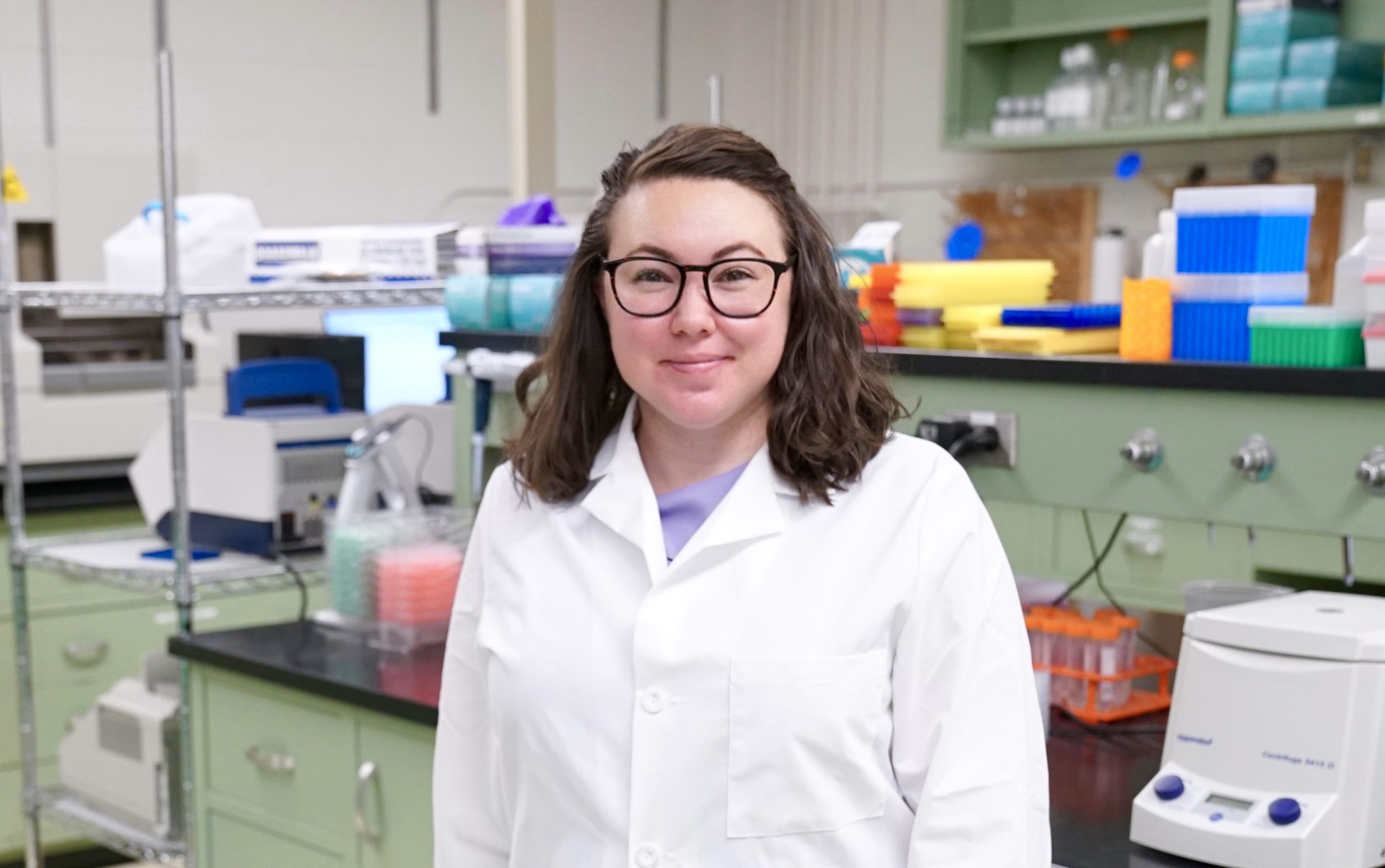Dr. Erin Andres joined the team at the Thompson Center in July 2022 as a postdoctoral fellow. In this role, she will primarily focus on the research projects brought to the Thompson Center by Dr. Stephen Sheinkopf, including the Early Years Study.
Tell us about your educational background.
After earning my BS in Neuroscience from Regis University in Denver, I entered the Child Language program at the University of Kansas-Lawrence, where I completed by master’s and Ph.D. The doctoral program used a multidisciplinary lens to study child language acquisition, including approaches from the fields of linguistics, psychology, genetics, and speech/language pathology.
What’s the biggest milestone you’ve achieved in your career so far?
As part of my Ph.D. program, I was involved with a longitudinal, family-based study that focused on Specific Language Impairment (SLI). We compared the genetic profiles of family members with and without SLI. A pattern emerged in the data I analyzed for one of the families and I was able to identify three genes for follow-up analysis in the larger sample. In the larger sample, variants were identified in 15 additional families on the gene BUD13. Given this finding, we can now look to this gene and its function as a focus for future investigation of the biological basis of language. The goal of this is ultimately to predict someone’s likelihood of having SLI and more quickly connecting high-risk individuals with early intervention services.
What’s your favorite thing about research?
I like developing research questions and coming up with ways to answer those questions. My goal for my career is to continue answering questions about early development.
What are your research interests?
Thus far, I have focused on investigating language development through the lens of genetics. The larger question guiding most of my research is “Is language innate to humans?” As I take this next step in my career at the Thompson Center, my ultimate goal is to contribute to developing strategies for earlier identification of autism and developmental delays, and therefore earlier intervention. We know that early intervention leads to improvements in academic outcomes, which are linked to overall quality of life; so, this work is really all about making peoples’ lives better.
What do you hope to gain from your time at the Thompson Center?
The Thompson Center is known for its interdisciplinary collaboration and I hope to incorporate this approach into my future work. As a researcher, having a partnership with a clinic is invaluable. Not only does is the clinic a source for study recruitment, but it also serves as an avenue to connect directly with our biggest stakeholders: patients and their families.


